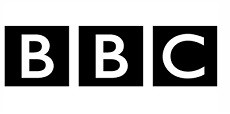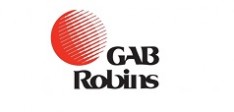The English: A few words of advice from an American in London…
This week we thought we’d explore the subtleties of English language and culture by viewing it through the lens of an Anglo-American. Who better than our very own, Delia Lloyd I’ve lived in the UK for 14 years and now hold dual American and British citizenship. While I’ve not yet braved the wilds of the famously challenging UK driving test, I’ve gotten to the point where England’s 4 pm winter nightfall no longer fazes me. But while it’s one thing to adjust to life in the UK, it’s another thing altogether to adjust to the work environment here. If you’re a newly minted American working over here, here are five things you need to know about working with the British: 1.Language. Much has been made of George Bernard Shaw’s famous observation about “two countries divided by a language.” If you “table” a motion in the UK, that means you’re opening it up for discussion. In the US, it means you are removing it from discussion. Then there’s the word “diary.” In American English, a diary is a personal journal about your private life. Here, it’s a calendar. So to “diarise” something (note “s” not “z”!) is to schedule it. And don’t even get me started on the differences in slang. 2. Pronunciation. Which brings us to pronunciation. The word “schedule” (with a “Shhhh” sound) will never sound right to this American ear. We “sked-jule” things. You also better brush up on your French before you start working here. I remember the first time I heard someone in London pronounce the word “penchant” as “pon-SHON.” I just thought he was being pretentious. Nope, everyone does that here. (Back in Jersey where I come from – err, that would be NEW Jersey – we say “PEN-shent.”) While I’m at it, if you’re on a business lunch, remember that an aubergine is an eggplant and a courgette is a zucchini. 3. Small talk. When I first moved here, a fellow American advised me that if you want to break the ice with a British person you’re meeting for the first time, you need to talk about the weather. I didn’t believe my compatriot. Now I do. 4. Communication Styles. My very first job was as an Assistant Professor of political science at the famously nerdy Massachusetts Institute of Technology (MIT). A joke there among the faculty ran like this: “How can you tell if a student here is an extrovert? He looks at the other person’s shoes when he’s talking to them.” I feel this way about the English. I can’t tell you how many times I’ve barrelled into a work conversation, metaphorical guns blazing, only to encounter the curt and almost bashful reply: “Sorry?” or “Pardon?” My Clearwater colleague, James Mc Brien, attributes my customary forthrightness to what he calls “my New Jersey charm.” Maybe so. But just try getting a British person to say “No” to you – or to manage an awkward conversation directly – and you’ll see what I mean about differences in communication styles. 5. Body language. Research suggests that we can instantly identify someone’s country of origin from something as mundane as the way that they smile, wave or talk. So if you’re an American working in the UK, here’s one to look out for in your next meeting. When we Americans signal the number three – as in “I’ve got three main points” – we hold up the three middle fingers in our hand. Britons, in contrast, pin the little finger with their thumb and raise the rest. Who knew? All that said, I love my adopted country. And I suspect you will too. Just be sure to check that weather…The English: A few words of advice from an American in London…
















